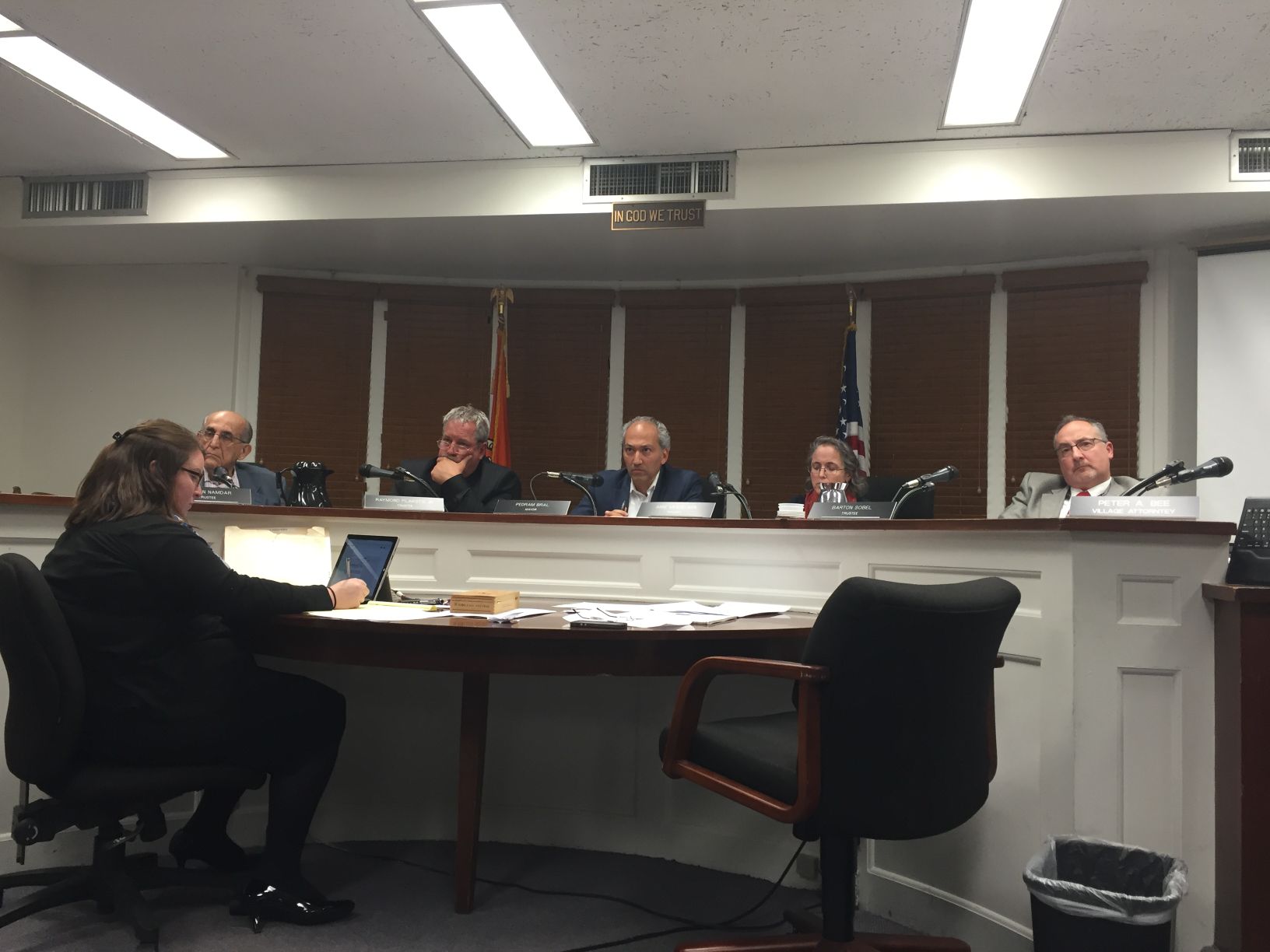Houses of worship in the Village of Great Neck seeking special-use permits will now be reviewed by the Board of Trustees after the board unanimously voted Tuesday to take the authority from the Board of Zoning Appeals.
“What this will do will allocate the power to every board from the Board of Trustees, the board of zoning, building department, architectural review board, and planning board in order for everybody to be involved in making a decision. That is not going to slow down the process, it is going to streamline the process,” Village of Great Neck Mayor Pedram Bral said. “The way it gets done is instead of taking care of one single aspect of every application, the different boards will take care of their jurisdiction and everything will get done, I believe, much faster and it is going to be less expensive for the applicant.”
On Dec. 1, the board held a public hearing for the new bill in which questions were raised over the need for the change.
“There is no indication of motivation, why are we doing this,” zoning board member Steven Markowitz said at the time. “What is the purpose, what is driving this?”
Prior to the vote, Bral and Village Attorney Peter Bee addressed concerns that were raised at the previous board meeting.
Bral said the proposed bill was not a “power grab” by the Board of Trustees, as they already had the authority over special-use permits for all other commercial properties except for houses of worship.
In New York State, the board of trustees are given the authority to hear cases regarding special permits, which they can delegate to the board of zoning appeals.
The change still allows the trustees to seek input from the Board of Zoning Appeals when hearing a complicated case.
“The code already provides that this board has authority over special permits, it just did not have authority over all special permits, and now it will,” Bee said. “There has been no change other than the movement from the Board of Zoning Appeals to the Board of Trustees under the proposal, except for the authority of special permit granting.”
He added that the Board of Zoning Appeals would continue to hold authority over granting variances.
In the bill, the board of trustees would be allowed to grant variances to special use permit applicants for minor changes not to exceed five percent of the area restriction of the zoning code.
“You are not obliged to make this zoning adjustment. You are not obliged, if you do, to make it a full five percent,” Bee said to the board. “It only empowers you if you wish to do so to make a minor, de minimis change to the requirements of code in order to allow the use as you granted under the special permit.”
Resident Carole Lynn Marino said although the changes may be minor, the variances can impact surrounding neighbors and residents.
“I’m very conscious of this because, to me, one foot, two foot, it’s all very important and it can affect somebody’s quality of life,” she said.
Bral said the board’s granting of variances was to quicken the process for applicants, who have been forced to spend a lot of money in fees for ongoing special use permit applications.
“If someone comes in and asks for a special-use permit and we believe that they can’t get what they want done unless they have that de minimis, minor change, instead of sending them to the BZA, we believe, by law, that the board of trustees have the ability to give that minor adjustment so they don’t have to go from board to board to get what they want done,” Bral said.
“Anything that takes a long time, is money for the applicants because usually they either own the building or renting the building,” he added. “So if they are not using it for six months, one year, two years, five years, whatever it is. If they are not able to get the permit but they are paying the rent on it, they can’t make money. So that’s costing them a lot of money.”
Resident Edwin Livian said the long-lasting reviews from the Board of Zoning Appeals for special-use permits forces places of worship to use more of their members’ money.
“Regarding houses of worship, if this makes things a little bit less costly for small changes that they have in the building or anything in that nature, I am definitely for it,” Livian said. “This should make things easier as far as spending so houses of worship do not need to empty out the pockets of their members who are already taxpayers in the village in order to do minor things.”
Resident Elizabeth Allen questioned whether the board would be held to the same requirements in regards to special-use permits as the Board of Zoning Appeals was.
“Everything that the BZA was supposed to do, all of those will apply to the Board of Trustees. Every single one,” Bral said. “We are not changing any form of the language. The only thing that is changed is BOT is taking the place of BZA in the bill.”
Deputy Mayor Raymond Plakstis, who said he initially had issues with some of the language used in the proposed bill, said it was time to have all commercial properties reviewed by one board for special-use permits.
“All we’re doing is taking the pie instead of three-quarters of it. Bringing in the other quarter and wrangling in,” Plakstis said. “It’s streamlining for all. We’ve already started to do it with restaurants. We’ve done it with other facilities in terms of commercials. Now it’s time to go and do it with the religious section.”



